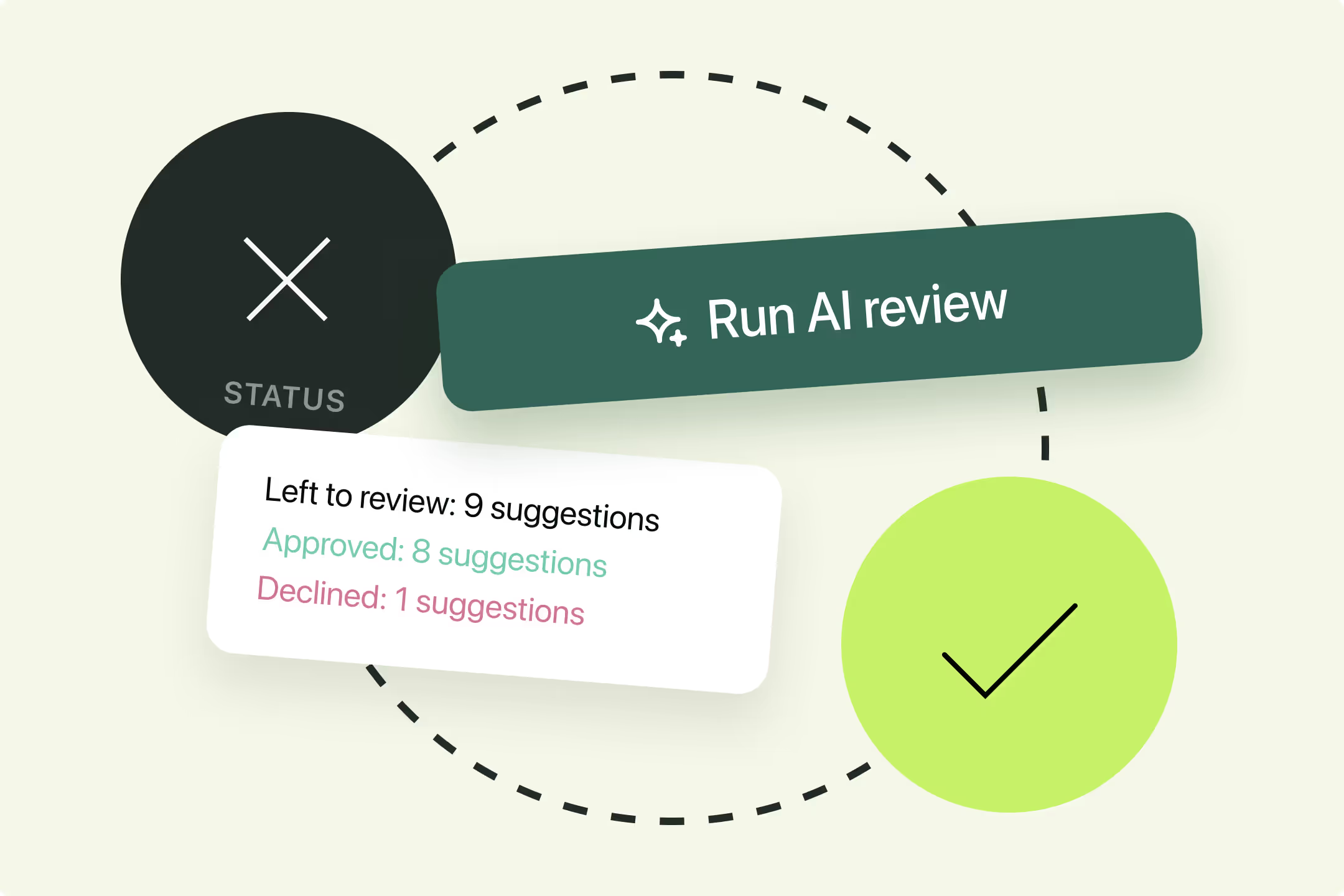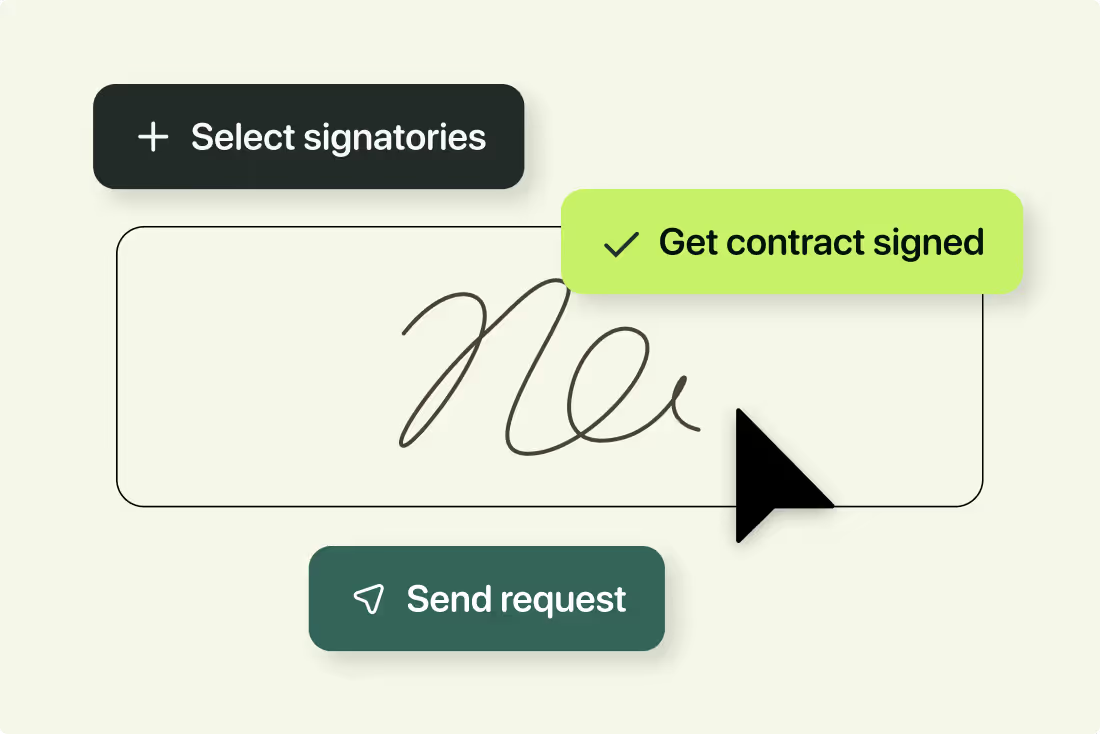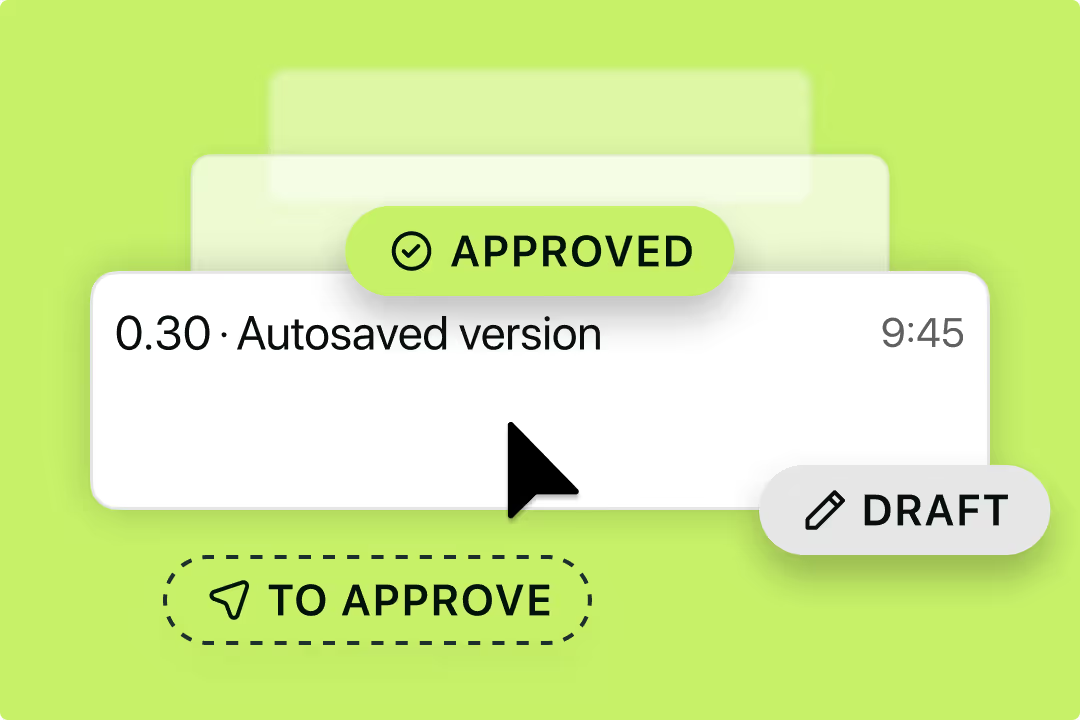Solutions
Customer Support
Resources
One of the biggest challenges for in-house legal teams today is managing their contracts more efficiently.
As their businesses are scaling, in-house lawyers are finding themselves buried in low-value work, such as managing routine contracts. These types of contracts don’t need to be handled by senior lawyers, but without a strong contract tool in place that enables teams to self-serve on contracts, this continues to be the case.
But what is a contract tool, and how can using one help relieve the pressure on in-house legal counsel? This article explains what a contract tool is, who should use it, and what different types of contract tools are available, as well as how to find the right one for you.
A contract tool is a piece of software that streamlines or increases the efficiency of one or more areas of the contract process.
The main aim of a contract tool is to make contract creation and management easier and eliminate any recurring bottlenecks in your manual contracting process, and it does this by providing certain useful features and functions or automating the process altogether.
Depending on the purpose of a contract and who is responsible for it, a variety of different individuals and teams might benefit from using a contract tool.
In most businesses, potential users might include legal teams, sales teams, HR teams and those that sit in other commercial functions.
Essentially, if you are dealing with a high (and increasing) number of contracts, then you will probably benefit from using a contract tool of some sort.
Contract review tools are software systems designed to help individuals and teams review and analyze contracts more efficiently and accurately, and ensure that the contract review process runs as smoothly as possible.
Most modern contract review tools will enable users to search for certain information in contracts and organize this information in different ways, which will then empower them to understand a contract in more detail before agreeing to its terms.

One of the most obvious benefits of contract review tools is the speed at which they enable business and legal teams to review contracts, rather than doing it manually.
As the name suggests, contract review software tends only to be useful at one contract lifecycle stage, not all. This means it's can't be used to streamline the entire contract workflow, unlike all-in-one solutions like Juro.
To explore the pros and cons of contract review tools in more detail, check out or guide to buying contract review software.
An eSignature tool is a piece of software that enables users to sign contracts and legal agreements online, often from anywhere in the world.
This type of contract tool will allow users to create an electronic signature on PDFs, Word Documents, spreadsheets and through other native in-browser contract platforms, like Juro. This contract tool aims to replace wet signatures and get contracts signed in a more convenient way.

Find out more about the various alternative eSignature tools available.
Contract tools that allow users to sign electronically empower different parties to sign a contract from anywhere in the world, using almost any device. This means that parties no longer need to be in the same room to sign a contract, or go through the time-consuming process of emailing, printing, signing and scanning a document to finalize a transaction. eSignature tools make contract signing far quicker and more convenient for everyone involved.
eSignature tools also offer a unique level of security that wet-ink signatures on physical documents don’t. This is because, when a contract has been signed online and stored in the cloud, it is far less likely to be lost, damaged or tampered with than if it were to sit in an office and stored improperly. Similarly, most eSignature providers will create an audit trail, which can be used to ensure that any electronic signatures are acquired in the right way.
Like contract review tools, a contract tool that only delivers on one stage of the contract process will not offer much value throughout the rest of the contract workflow. Since an eSignature tool is only designed to streamline and optimize the signing process, legal teams that need to create, negotiate, approve, review and audit contracts will not be able to overcome the various blockers that occur at the other stages of contracting.
Since getting a contract signed is one of the final stages of the contract process, this means that, without an end-to-end solution in place to address the other stages of a manual workflow, fewer contracts might reach this milestone to begin with - particularly if a contract is difficult to negotiate.
A contract lifecycle management (CLM) tool is a piece of software designed to aid legal and commercial teams in the creation, negotiation, signature, renewal and analysis of contracts and the data they contain.
This type of contract tool helps to streamline the contract lifecycle and makes managing high volumes of contracts much easier and more efficient.

Typically, a contract lifecycle management tool will have some features that help legal teams create, collaborate, negotiate, sign, track and renew contracts, allowing each stage of the contract lifecycle to be addressed.
This type of contract tool is typically invested in when contract volumes are increasing in a business and becoming difficult to handle through a manual contract process that uses Word and shared drives.
Contract lifecycle management tools make the contract process considerably faster. This is because creating a document based on an existing template is often much less time-consuming than writing a contract from scratch.
This also means that contract management software can make contract processes more scalable, since users can quickly increase the number of contracts they are creating, without the need to hire more contract specialists.
This type of contract tool is renowned for having a long implementation period - often of between 6 to 12 months, meaning that it can take a long time before a business begins to get value from the software. This makes them a better choice for large corporations, rather than fast-growth companies keen to gain value for the product quickly, who will probably be best-suited to an all-in-one contract automation tool instead.
If you're ready for the advantages of contract lifecycle management, but without the lengthy delays and hidden costs, hit the button below to find out how Juro can help your business manage contracts at scale in your browser.

An all-in-one contract automation tool delivers all of the same contract review, redlining and eSignature capabilities as other contract tools, but also addresses each and every stage of the contract workflow - end to end. This means that in-house legal teams can rely on one single system when managing their contracts, instead of several manual ones.
With a contract tool that automates the entire contract workflow, legal teams can enable commercial teams, rather than blocking them. It also empowers business departments such as sales, HR and procurement to self-serve on routine contracts, allowing busy legal teams to return to high-value work.

Juro is an all-in-one contract automation solution that enables commercial and legal teams to create, approve, sign and manage contracts in one unified workspace.
Juro seeks to replace the various tools typically involved in a manual contract process and eliminate any bottlenecks that get in the way of contracts getting signed with a single collaborative workflow. Juro enables users to:
One of the most commonly reported benefits of using a contract automation tool is that it reduces the mundane admin work otherwise required in a manual contract process. This benefit is clear throughout the contract lifecycle.
For example, an automated workflow means saying goodbye to the tedious task of copying and pasting, and reformatting text from an old template into Word. It also means being able to sign documents electronically from anywhere in the world, and in-browser negotiations that eliminate the need for back and forth over email.
In turn, this also speeds up the signing process, helping teams capture revenue and get contracts across the line faster.
Best of all, an all-in-one contract automation tool combines the various benefits and features of other contract tools to allow your teams to work in one unified workspace, rather than messing around with multiple tools.
Not only does this streamline the contract process and make it far more efficient in terms of time, but it is also cost-efficient since a contract tool with comprehensive functionality eliminates the need to pay for numerous different contract tools like eSignature and contract review software, which can quickly become expensive.
Of course, an end-to-end solution won’t be right for each and every business, and contract automation tools may offer too much functionality for businesses that only agree the occasional contract. A contract automation tool is best suited to scaling or fast-growth businesses where the number of contracts sat with legal teams is increasing faster than legal headcount, not a business that barely deals with contracts at all.
When deciding which contract tool is best for your business and legal teams, you should consider how healthy your contract workflow is already, and how much value can be added by the different types of software.
Where are the bottlenecks in your contract process? If the only delays your legal team experiences are in the review process, then you’ll probably be satisfied with a review tool. Similarly, if you are only looking to be able to sign contracts electronically and nothing more, an eSignature solution is likely best for you.
However, most visionary legal counsel in a scaling business will be looking to streamline and optimize their entire contract workflow from start to finish, and an all-in-one contract automation platform is a contract tool that delivers just that - a more efficient, organized and hassle-free experience for legal and business teams alike.
Looking for a contract tool that does it all? Juro is a contract automation platform that enables your team to create, negotiate, approve, sign and review routine contracts at scale without ever leaving the browser. To find out how Juro can help your legal and business teams move towards a more efficient contract workflow, hit the button below to get in touch.
Lorem ipsum dolor sit amet, consectetur adipiscing elit. Suspendisse varius enim in eros elementum tristique. Duis cursus, mi quis viverra ornare, eros dolor interdum nulla, ut commodo diam libero vitae erat. Aenean faucibus nibh et justo cursus id rutrum lorem imperdiet. Nunc ut sem vitae risus tristique posuere.

